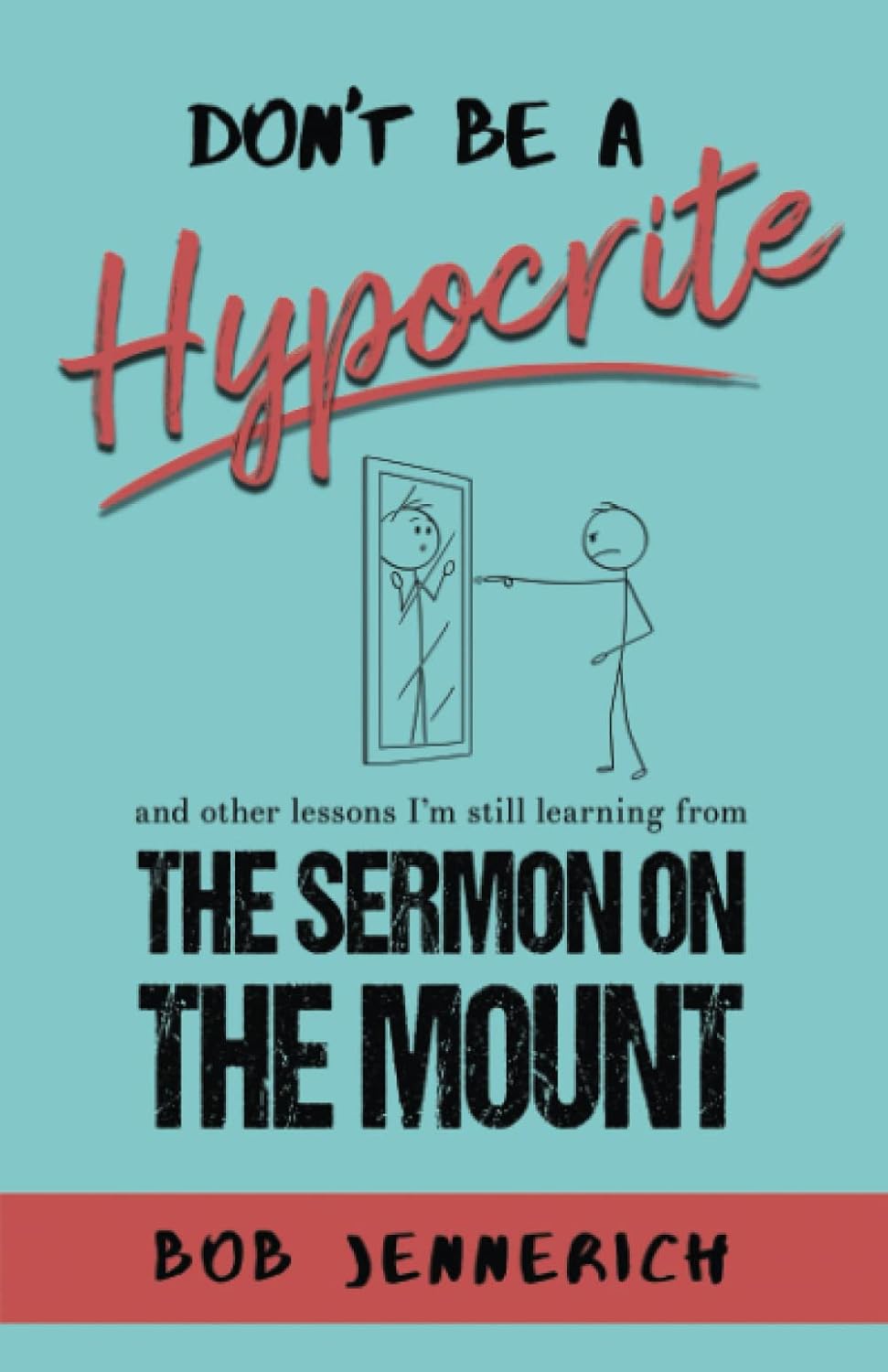
“Don’t judge me!”
How many times have you heard someone say that—maybe even in a heated conversation or an online debate? Chances are, they were quoting (or misquoting) one of the most well-known verses in the Bible:
“Do not judge, or you too will be judged” (Matthew 7:1).
It’s become almost a cultural slogan—used to shut down discussions, excuse questionable behavior, or suggest that no one has the right to challenge anyone else. Even many Christians use this verse to suggest that calling out sin or holding someone accountable is unloving or judgmental.
But is that really what Jesus meant?
To truly understand and apply this verse, we need to look beyond the soundbite and dig into the context of Jesus’ teaching. Because when we misunderstand Scripture, we’re likely to misapply it—and that can do more harm than good.
Let’s explore what Jesus actually said in Matthew 7:1-6, and how we can practice discernment in a way that reflects truth, humility, and grace.
Context Is Key: Understanding Matthew 7
It’s important to recognize that removing a verse from its context can lead to misinterpretation—and misapplication. Theologians often say, “Wrong interpretation leads to wrong application.” That’s especially true here.
If we read only the first part—“Do not judge”—we might conclude that Jesus forbids all forms of judgment. But just a few verses later, Jesus Himself calls certain people “dogs” and “pigs” (Matthew 7:6) and warns His followers to watch out for false prophets (Matthew 7:15-16).
Clearly, He is making judgments.
So, what’s going on?
Jesus Isn’t Forbidding All Judgment
Jesus’ warning is not a blanket command against making moral or spiritual evaluations. Rather, He is speaking against hypocritical, self-righteous judgment.
In Matthew 7:3-5, Jesus uses the vivid image of someone trying to remove a speck from another’s eye while ignoring the log in their own. His point? Before correcting someone else, we must first examine ourselves. We cannot see clearly—or help others—if we’re blind to our own faults.
The eye illustration is deliberate. The eye is delicate. You can’t help someone with a speck in their eye if you’ve got a plank in your own. You’ll do more harm than good.
The Difference Between Righteous and Hypocritical Judgment

Jesus doesn’t prohibit all judgment—He calls for righteous judgment. In John 7:24, He says,
“Do not judge according to appearance, but judge with righteous judgment.”
Righteous judgment is humble, not harsh. It is discerning, not condemning. It seeks restoration, not superiority.
We are to evaluate actions and teachings—especially within the church—but always in a spirit of grace and humility. This is how we can identify false teachers (Matthew 7:15-16) and avoid casting truth before those who continually reject it (Matthew 7:6).
What About False Prophets and Hardened Hearts?
In Matthew 7, Jesus speaks about “dogs” and “pigs”—symbols for those who repeatedly reject the gospel and have no desire to embrace it. He’s not telling us to withhold the message of salvation out of cruelty but urging us to be wise and discerning in how and where we share truth.
He also warns about false prophets—those who appear righteous but twist God’s Word and lead others astray. How can we recognize them?
“By their fruits you will recognize them” (Matthew 7:16).
That requires judgment—righteous judgment.
Judge Yourself First
So, what is Jesus warning us about?
He is cautioning us against judging others without first examining our own hearts. The Pharisees were notorious for doing this—looking holy on the outside while being corrupt on the inside.
In Matthew 7:5, Jesus gives the proper order:
“First take the log out of your own eye, and then you will see clearly to take the speck out of your brother’s eye.”
This is not a prohibition against helping someone with their sin. It’s a call to personal accountability before offering correction.
We Are Not the Final Judge

Jesus continues in Matthew 7:1-2:
“Do not judge, or you too will be judged. For in the same way you judge others, you will be judged, and with the measure you use, it will be measured to you.”
He’s reminding us that we are not God. We are not the final judge of anyone’s soul. That authority belongs to God alone.
In 2 Corinthians 5:10, Paul writes:
“For we must all appear before the judgment seat of Christ…”
God will judge us using the same standard we used on others. If we were merciful, we would receive mercy. If we were harsh and condemning, we’d be judged accordingly.
Avoid Judging Motives
Another crucial application: we must avoid judging people’s motives.
Only God can see the heart (1 Samuel 16:7). We might observe actions, but we do not fully know what’s going on inside someone. It’s tempting to assume the worst, but Scripture calls us to pause.
For example, if someone stops coming to church, we might quickly assume they’ve fallen away or were never truly saved. But that’s not our place. Instead of condemning, we are called to pray, reach out, and leave their spiritual status to God.
Final Thoughts: Judging with Grace and Truth
Jesus never said, “Don’t ever make a judgment.” What He said—and what He meant—was that we must not judge with hypocrisy, pride, or condemnation.
Yes, we’re called to speak truth. We’re called to hold one another accountable, discern right from wrong, and recognize false teachings. But we’re also called to examine our own hearts first, to approach others with humility, and to leave final judgment to God.
It’s easy to look at someone else’s life and spot the flaws. It’s much harder—and far more powerful—to check our own hearts, offer grace, and lovingly help others walk in truth.
So the next time you’re tempted to say something about someone—or tempted to say, “Don’t judge me”—pause and remember this:
We can judge… but only the way Jesus did—righteously, humbly, and with a heart set on restoration, not condemnation.
Let’s be people who speak the truth, but always with love. Let’s be discerning without being dismissive. And most importantly, let’s trust God to do what only He can do: see the heart, correct the motive, and judge justly.
Has this helped you see Matthew 7:1 in a new light?
Share your thoughts in the comments below or pass this post along to someone who might be wrestling with this verse.
Let’s grow together in truth and grace.
As an Amazon Associate, I earn from qualifying purchases. This means that if you click on an affiliate link and make a purchase, I may receive a small commission at no extra cost to you. Thank you for your support!
Recommended Resource:
Don’t Be a Hypocrite: And Other Lessons I’m Still Learning from the Sermon on the Mount by Bob Jennerich
 You’ve probably read the Sermon on the Mount and thought, “Was Jesus serious? Who can possibly obey this?”
You’ve probably read the Sermon on the Mount and thought, “Was Jesus serious? Who can possibly obey this?”
Jesus preached this sermon on a hillside by the Sea of Galilee two thousand years ago to confront the world’s value system and to teach about the kingdom of heaven. His audience listened with awe as Jesus systematically dismantled the teaching of the scribes and Pharisees. He taught the values and attitudes that true citizens of the kingdom of heaven possess.
It makes us question not only everything we do but every motive behind it. It’s the greatest sermon ever preached, but hard to understand and apply to our lives. Like a surgeon, Jesus cuts us deep to heal us. His message to us is simple, “Do Not Be Like the Hypocrites.” A kingdom citizen must be different.

Hello Alice,
I am very sorry I have not been commenting on your presentations lately– not sure if the section was blocked, but I am finally back!! Woohoo!
Anyway, great sermon. I recently gave a presentation to my Christian club this past week about the fruits of the Holy Spirit. I also pointed out the ways in which we are supposed to “judge” believers. While we should not harshly judge others, we can offer a gentle critique to help improve their lifestyles.
For example, a gentle critique for a churchgoer who struggles with sin would go something like, “I admire your passion for teaching people about God’s love. However, I think you should work on being more gracious when dealing with kids who act up.” Or a harsh, self-righteous rebuke would go like this, “This guy has a fancy house, and is living a luxurious life. Therefore, he is going to Hell!”
Do you notice the difference between these two? Let’s work on knowing when and how to fire our weapon of rebuke without ultimately destroying the reputation of a Christian. Vengeance is God’s, not yours.
Great to hear from you again, Maia. I hope things are going very well.
Yeah, it’s very easy for us to go “judgmental mode” without trying to understand where they’re coming from. This is why we need to be very careful when dealing with our brethren who might be going off-track.
Condemning them is the least they need. Rather, we have to let them know that they can always count on our support in their struggles.
Thanks for the well-put illustration.
God bless!
Thanks for that well-explained verse, about judging others.
Yes, I agree that we can correct or judge others in a very nice manner, and if we are an accountable person of the person who do wrong.
Hi Teacher Encarnacion,
Thank you for reading the article.
Many Christians often misquote Jesus on what He said about judging others but looking at it in context, it’s okay to judge others, as long as we do it without actually being judgmental. Magulo po ba ma’am? He he. I hope not.
God’s blessings be upon you.
Hello, love your article on judging,
A spiritual mentor of mine once shared with me that an unsaved friend he was reaching out to, rejected the Gospel on the grounds that he didn’t want to end up in church with all those hypocrites.
My friend replied “well you’re already with just as many hypocrites outside of the church. The people inside the church are no different, they’re just believers.”
Food for thought ??
Hi Evan,
This is the problem Christians often face when sharing the Gospel to the unsaved; being told that they do not want to come to Church because it is full of hypocrites. I admire your mentor for being completely honest to his friend. He is absolutely right because the Church is full of sinners saved by the grace of God.
That is why we Christians need to let God transform us and live as true ambassadors for Christ (2 Corinthians 5:20). Yes, even when we were yet sinners Christ died for us (Romans 5:8), but we should not remain in the state or condition we were in before getting saved.
We are supposed to be a true, living testimony of the love and goodness of God which will happen only if we completely surrender our lives to Him. We must realize that all eyes are on us and so even the slightest mistake we make is such a BIG DEAL to the people of this world.
How then do we reach the lost? Let us continue to show them how much we genuinely love and care for them and then leave the rest to God. After all, our job is not to convert people but to love them the same way that we love ourselves.
Thank you Evan for your comment.
Blessings …
I would like to thank you for the great explanation about the righteous judgment. I personally believe that the quantity of wrong judgments, gossips, and consequently hatred – which are all connected together – that are spreading on planet earth is more than the quantity of air and water .
I would like to note also that the phrase ““Do not judge ……….. it will be measured to you.” coincides with the recent psychology that what you give out to the world returns to you. And we should not judge because we do not know what hell people are living in.
Thanks for the great insights and explanation of the verse for us .
Sam,
Thank you so very much for the visit and your comment.
Critical judgments are what Jesus condemns. Sadly this is what we commonly get not only from the world but even from fellow Christians. Exercising righteous judgments is what’s expected from the followers of Christ; Christians must by all means avoid wrong judgments.
By the way, it’s not at all surprising for Christians to be hated and judged wrongly by the world because Jesus said this will happen (John 15:18).
Shalom!
Thank you so much for posting this! It is just unbelievable how many people take that verse out of context. Jesus is definitely not saying you shouldn’t judge at all, but like your article says, there is a righteous judgment and you want to make sure that the log is out of your eye before you do cast judgment on what is sinful in another person’s life! How often have you come across people that have told you that you’re not supposed to judge?
Hello Brian,
Taking verses out of its original context is one of the most common mistakes Bible readers commit. There have been several occasions where I was told not to judge especially when I asked them to cite specific biblical texts to support their doctrines. When they find themselves pushed to the corner and have nothing else to say, they quickly say, “Don’t judge!”
There is a right way to judge and that’s what Jesus is telling us to do. We exercise righteous judgment and careful discernment to distinguish between right and wrong. But before trying to correct the faults of others, we must make right our own faults first. Otherwise, we will be causing more damage to the person than good.
This is such an important topic you have written about here. I totally agree about reading the bible in context. Many do not and that lead them to false judgements/interpretations of single verse in the bible. It is definitely about looking at yourself first before you say anything about anyone else, not about letting sin slide.
I also agree about not passing judgement of if someone is saved or not. Paul tells us in Philippians to work out our own salvation. We have no idea what is in a person’s heart, lets just focus on making sure we ourselves are right with God.
Great article
Shalom Thea!
Proper biblical interpretation is absolutely necessary to avoid misapplying the Word of God and we do this by reading the passage in its original context. Many people, even Christians fail to do this and that is why they come up with contradicting interpretations.
It often amazes me how people use the words, “Do not judge” when caught in their sins and so we need to understand what Jesus really means when He said those words. And clearly, Jesus is talking about examining our self first and correcting our own faults before looking at the faults of others.
Determining whether a person is saved or not is another thing that we as believers shouldn’t be looking into because only God knows the heart. You’re right! Instead of questioning somebody else’s salvation, we must focus our energy on serving God, obeying Him and loving Him with all our heart.
Thanks Thea, God bless you!
Hi,
I think you have a wonderful post and especially like how you point out that it is important to consider our shortcomings and failures first before automatically assuming that we are better than someone or know better than they do. I believe that it is only human nature for us to want to see ourselves in a good and positive light just like I believe it is human nature for us to want to see someone punished or condemned for doing something we perceive to be wrong. Jesus calls us to strive beyond human nature and to practice some pretty difficult things like looking to our faults, forgiveness, humility etc. These are great lessons to follow no matter what religious path one decides to take and I really appreciate your post on this.
Hey Krystal,
You’re absolutely right! It’s human nature to want to see people get what we think they deserve. And we are also quick to point out the errors of other people without first looking at our own mistakes. Jesus never told us to keep mum on the faults of others and pretend everything’s okay. His emphasis was fixing what’s wrong with us first before trying to fix somebody else or we might do more damage than good.
But at the end of the day, God will be the one to judge whether we have followed what He has been teaching us all along. God is a righteous judge and everyone receives what he deserves, either reward or punishment.
Hi Alice,
Congratulation for sharing God’s word through your website. This is what we really need in our secular world. I found your site and this particular post very informative. I wish your articles will reach a lot of Christians and other people around the globe.
Judgment on other people is an actual topic. Especially people who are connected with the church have to be aware that judgment is bad and immoral habits.
God bless you
Igor
Hi Igor,
Judging may sound like a negative thing but like what I explained in my article, there’s a kind of judgment that Jesus commends (righteous judgment) and another that He said we must by all means avoid (self-righteous and hypo/hypercritical judgment). Jesus commands us to judge but with righteous or proper judgment (John 7:24).
For us to obey God’s commands, we need to exercise judgment in order to determine between right and wrong. Even the apostle Paul told the believers in Corinth to judge one another in 1 Corinthians 5:9-13. But we are not to judge the unbelievers as we have no business doing that.
Shalom and God bless you!
Although I am not very familiar with the bible, I did find the article interesting. And I thought your article was well put together and you explained it really well. I know some of my friends who are very religious would be interested in learning this; I will definitely pass it on to my friends. Thanks for sharing!
Hi Hong,
I wanted to tackle this topic because this is one of the most misquoted texts in the Scriptures. You might be surprised to know that Christians are not the only ones guilty of doing this but even people who hold a completely different worldview. Anyway, thanks for your comment and I appreciate it very much if you could share this to your friends.
God bless!
The article is very articulate on what we should do and what we should not do. The author brings out the notion that we examine ourselves before we condemn others. I find the layout very nice with many visuals to bring out the real picture. The website theme also comes out very nicely.
The message itself is laced with a lot of links for ease of referencing.
Great piece of work.
Hello Peter, thanks for your comment.
I’m glad you find this article right on point on how believers are to properly apply the words of Jesus in the passage quoted. This all comes down to how we understand every passage in its original context.